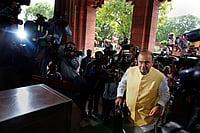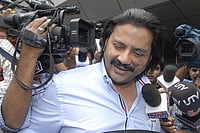Suddenly, it all makes sense. Political sense, that is. Pranab Mukherjee’s 2011 budget, his third for UPA-II, is a work of genius precisely because it contains an ambivalent message. It is neither reformist nor anti-reform. It’s neither overtly political nor brutally economic in vision. It’s neither profligate nor tight-fisted.
One could say it’s neither here nor there, but it is probably the right script for the Sonia-Manmohan-Rahul troika in 2011-12, which marks the mid-point in the UPA’s second term. The political backdrop to the budget explains why Pranab did what he did on February 28. The last 12 months have seen the government’s credibility in tatters, with the PM taking much of the flak for sleeping on his watch when the Kalmadis and Rajas were eyeing the household silver. It wasn’t Manmohan’s failure alone, but also Sonia’s. Under the tacit understanding struck in 2004, she was to run the coalition and he the government. The problem is, neither managed either. Hence the political free fall in UPA-II.
The 10-Janpath-Race-Course-Road brief for Pranab emerged from the realisation that the duo had screwed up and needed to prop up each other. Manmohan had to re-establish his governance authority and Sonia her political priorities. The consensus: don’t do anything to upset any major interest, make sure the budget passes without a hitch, spruce up the finances and hoard budgetary resources for the populist push in 2012 and 2013, which will see the last two full budgets of UPA-II before, presumably, making way for Rahul baba & co.
The budget’s finely crafted proposals must be seen from this vantage point. The first task was to throw tit-bits in all directions. The corporate sector was kept quiet by a reduction in surcharge. Ordinary taxpayers were given the optical illusion of higher tax-free incomes when all Pranab did was adjust brackets for inflation. To extend the illusion, he opened the taps for senior citizens by reducing the age of eligibility to 60 and by showering benefits on the over-80s. The method in this madness? Giving the old benefits is politically correct, and doesn’t cost the exchequer much.
But here’s the masterstroke: the budget shifts taxation from the visible to the invisible. The direct tax reliefs cost Pranab Rs 11,500 crore, but he has clawed it all back (Rs 11,300 crore) by mugging the unwary. He has spread service tax to new areas and withdrawn excise exemptions to over 130 (unnamed) items. Those guys will sure scream in private, but at 1 per cent excise, it’s a mere pinprick. The screaming will fall on deaf public ears.
Equally interesting is the way Pranab handled (or, rather, evaded) the real challenges facing the nation: inflation, fiscal deficit, subsidies, governance reforms et al. Inflation gets barely a mention for that’s something he cannot ultimately control; the excise and service tax extensions will anyway be inflationary. His hope is that agriculture will continue to be bountiful. This is why he has scattered his largesse to sectors that store and move food, with special prayers to Lord Indra to run a benevolent eye on this part of the world. Subsidies are supposed to be contained by targeting them better and raising fuel prices—but he didn’t quite say that. We can only figure this out from the fact that he’s lowered the money earmarked for petro-fuel subsidies.
The big idea of Budget 2011 is the proposed shift in subsidies to cash for kerosene, cooking gas and fertiliser. But Pranab has been reticent on this count. Giving cash means targeting deserving beneficiaries and eliminating the rest. But will UPA-II bell the cat? Nandan Nilekani can tell Pranab if cash payments are feasible, but he cannot help him identify who gets the money and who doesn’t. That’s the politician’s job—and they are not queuing up to get it done. Pranab himself has left that for March 2012. It probably won’t happen.
The fact that the Food Security Act will not be implemented till 2012-13 means Budget 2011 is the missing link between prudence and pork-barrel politics. Pranab’s job is to consolidate the fisc and allow Sonia-Rahul to cut loose on subsidies in 2012 and ’13—in time for the elections. What this implies is that fiscal rectitude may end after this year. The bottomline: Budget 2011 is the dieting that happens before a binge.
The author is Editor at Network18’s Business Portals

























